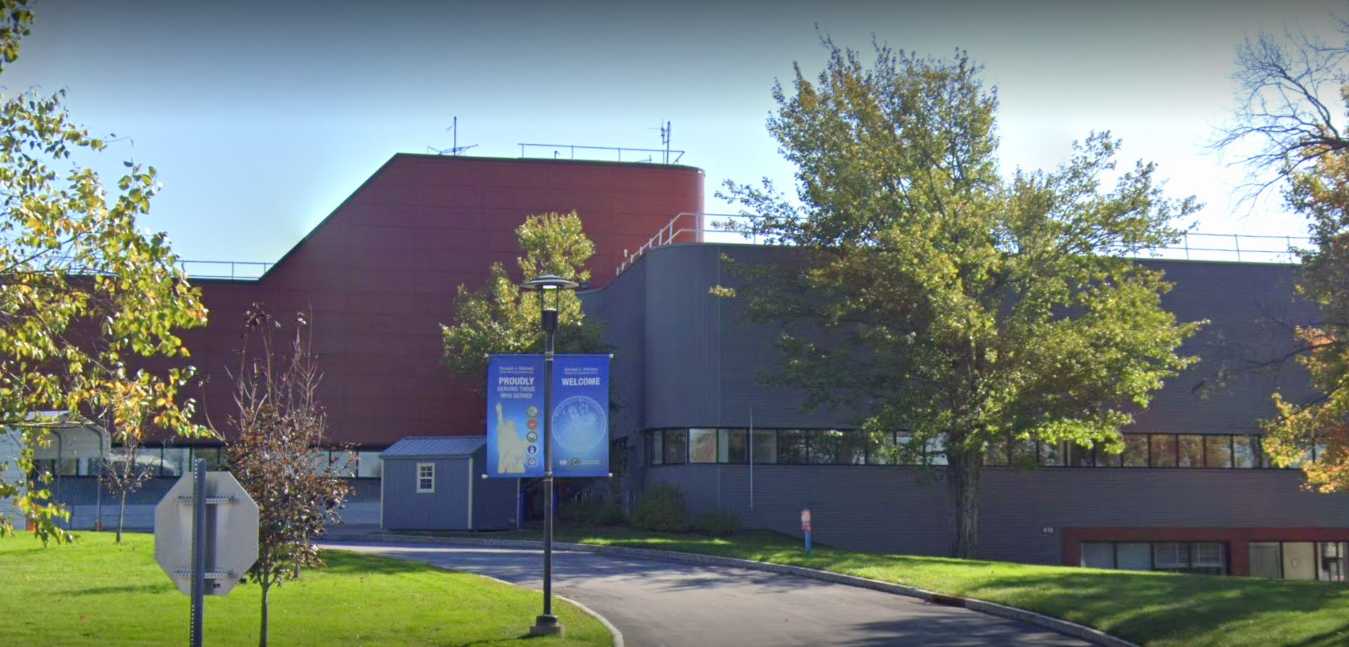Mohawk Valley Psychiatric Center

Contact Details
-
Name:Mohawk Valley Psychiatric Center
-
Address:1400 Noyes Street
Utica, NY - 13502 -
Phone:315-738-3800
-
Email:
-
Instagram:
-
Website:
Description
There are currently state and federally funded or sponsored drug and alcohol treatment centers in the state of New York
Questions & Answers
Help others like you find out more about Mohawk Valley Psychiatric Center. Do you know the answers to any of these questions? Contribute now and help others like you.
What kinds of care do they offer?
-
Mental health treatment
Includes interventions such as therapy or psychotropic medication that treat a person's mental health problem or condition, reduce symptoms, and improve behavioral functioning and outcomes.
-
Treatment for co-occurring substance use plus either serious mental health illness in adults/serious emotional disturbance in children
Housing for individuals recovering from substance abuse that is designed to provide a drug and alcohol-free living environment and appropriate support services to facilitate movement to independent living. Such housing includes transitional living, sober houses, sober living, recovery houses, and 3/4 houses.
What type of facility is this?
-
Psychiatric hospital
Licensed general hospital (public or private) that provides inpatient mental health services in at least one separate psychiatric living unit. This unit must have specifically allocated staff and space (beds) for the treatment of persons with mental illness. The unit may be located in the hospital itself or in a separate building, either adjacent or more remote, and is owned by the hospital. It may also provide 24-hour residential care and/or less than 24-hour care (e.g., outpatient, day treatment, partial hospitalization), but these additional service settings are not requirements.
What types of treatment approaches do they offer?
-
Individual psychotherapy
Focuses on a patient's current life and relationships within the family, social, and work environments through one-on-one conversations with a therapist. The goal is to identify and resolve problems with insight, as well as build on strengths.
-
Group therapy
Involves groups of usually 4 to 12 people who have similar problems and who meet regularly with a therapist. The therapist uses the emotional interactions of the group's members to (1) help them get relief from distress and (2) possibly modify their behavior.
-
Dialectical behavior therapy
A cognitive behavioral treatment approach with two key characteristics: a behavioral, problem-solving focus blended with acceptance-based strategies, and an emphasis on dialectical processes. "Dialectical" refers to the issues involved in treating patients with multiple disorders and to the type of thought processes and behavioral styles used in the treatment strategies. DBT has five components: (1) capability enhancement (skills training); (2) motivational enhancement (individual behavioral treatment plans); (3) generalization (access to therapist outside clinical setting, homework, and inclusion of family in treatment); (4) structuring of the environment (programmatic emphasis on reinforcement of adaptive behaviors); and (5) capability and motivational enhancement of therapists (therapist team consultation group). DBT emphasizes balancing behavioral change, problem-solving, and emotional regulation with validation, mindfulness, and acceptance.
-
Activity therapy
Includes art, dance, music, recreational and occupational therapies, and psychodrama.
-
Abnormal involuntary movement scale
The Abnormal Involuntary Movement Scale (AIMS) is a rating scale that was designed in the 1970s to measure involuntary movements known as tardive dyskinesia (TD).
-
Smoking not permitted
Smoking is not allowed.
What type of setting is this location?
-
Hospital inpatient/24-hour hospital inpatient
Medical treatment that is provided in a hospital or other facility and requires at least one overnight stay.
-
Residential/24-hour residential
Who is responsible for the operation of this facility?
-
State government
Government of a country subdivision in a federal form of government, which shares political power with the federal or national government and must meet certain standards set by the federal government, but are free to expand beyond what exists at the federal level and improve services, access, and protections for consumers, such as mental health and substance abuse services, in that state.
What types of payment or funding do they accept?
-
Cash or self-payment
Payment for treatment is made by the person directly, through cash or other means, rather than using health insurance.
-
Medicaid
A joint federal and state program that helps with medical costs for some people with low incomes and limited resources. Medicaid programs vary from state to state.
-
State-financed health insurance plan other than Medicaid
-
Private health insurance
-
Federal military insurance (e.g., TRICARE)
-
State welfare or child and family services funds
-
Other State funds
-
County or local government funds
Is any payment assistance available?
-
Sliding fee scale (fee is based on income and other factors)
Variable prices for services based on a person?s ability to pay.
-
Payment assistance (check with facility for details)
A program which helps low-income, uninsured, or underinsured patients who need help paying for all or part of their medical bills.
What language services are offered?
-
Sign language services for the deaf and hard of hearing
Service provided for persons who are deaf and hard of hearing.
What specific groups are treated here?
-
Children/adolescents with serious emotional disturbance (SED)
Facility has a program or group specifically tailored for children/adolescents with serious emotional disturbance.
What ancillary services are offered at this facility?
-
Court-ordered outpatient treatment
Known by different terms in different states, such as, ?assisted outpatient treatment (AOT),? ?involuntary outpatient treatment,? or ?mandatory outpatient treatment.? Forty-four states permit the use of court-ordered outpatient treatment as a condition for persons with severe mental illness, who are too ill to seek care voluntarily, to remain in their community. Each state has its own civil commitment laws that establish criteria for determining when court-ordered treatment is appropriate for these individuals. (https://www.crimesolutions.gov/ProgramDetails.aspx?ID=228)
-
Education services
Locate or provide educational services from basic literacy through a general equivalency diploma and college courses including special education at the pre-primary, primary, secondary, and adult levels.
-
Family psychoeducation
Helps consumers and their families and supporters, through relationship building, education, collaboration, and problem solving to: 1) learn about mental illness; 2) master new ways of managing their mental illness; 3) reduce tension and stress within the family; 4) provide social support and encouragement to each other; 5) focus on the future; and 6) find ways for families and supporters to help consumers in their recovery.
-
Illness management and recovery
Uses a standardized individual or group format based on five evidence-based practices: 1) Psychoeducation, 2) Behavioral tailoring, 3) Relapse prevention training, 4) Coping skills training, and 5) Social skills training.
-
Legal advocacy
Refers to legal services provided to help protect and maintain a client/patient's legal rights.
-
Psychosocial rehabilitation services
Offered individually or in groups, provide therapeutic or intervention services such as daily and community-living skills, self-care and skills training (grooming, bodily care, feeding, social skills training, and basic language skills).
-
Suicide prevention services
Include identifying risk factors; educating staff on identifying the signs of suicidal behavior and using methods to detect risk; and the assessment, intervention, and management of suicidal patients including treatment of an underlying mental or substance use disorder, and use of psychotropic medication, supportive services, and education. Hotlines help individuals to contact the nearest suicide prevention mental health provider.
What types of screening and assessment methods are used here?
-
Screening for tobacco use
Determines a client's use of tobacco products, such as cigarettes, cigars, pipe tobacco, or smokeless tobacco. It is generally recommended that providers screen for tobacco use on a regular basis by asking clients, as they are seen, about their current and past use of tobacco products and their exposure to secondhand smoke or tobacco.
What kinds of education and counseling services are offered here?
-
Smoking/vaping/tobacco cessation counseling
Includes interventions for persons who use tobacco and want help with stopping, including behavioral support or counseling in groups or individually.
What age groups are accepted here?
-
Children/Adolescents
Facility accepts children/adolescents (12 or younger) for treatment.
What types of testing do they offer?
-
HIV testing
Determines whether you are infected with HIV, a virus that weakens the immune system and can lead to acquired immunodeficiency syndrome.
-
Metabolic syndrome monitoring
-
Laboratory testing
What specific pharmacotherapy treatments do they provide?
-
Chlorpromazine
Chlorpromazine is used to treat the symptoms of schizophrenia and to treat the symptoms of mania in people who have bipolar disorder. It helps you to think more clearly, feel less nervous, and take part in everyday life. It can reduce aggressive behavior and the desire to hurt yourself/others. It works by helping to restore the balance of certain natural substances in the brain.
-
Haloperidol
Haloperidol is used to treat psychotic disorders and is also used to control motor tics and verbal tics in adults and children who have Tourette's disorder. Haloperidol is also used to treat severe behavioral problems such as explosive, aggressive behavior or hyperactivity in children who cannot be treated with psychotherapy or with other medications. Haloperidol is in a group of medications called conventional antipsychotics. It works by decreasing abnormal excitement in the brain.
-
Aripiprazole
-
Clozapine
-
Olanzapine
-
Quetiapine
-
Risperidone
-
Ziprasidone
-
Antipsychotics used in treatment of SMI
A multi-disciplinary clinical team approach, helps those with serious mental illness live in the community by providing 24-hour intensive community services in the individual's natural setting.
Is vaping allowed at this facility?
-
Vaping not permitted
How do I apply for admission at this location?
Have you been to this facility? What was your experience?
Is there a wait-list for treatment center?
Is any payment required?
Related Posts
Syracuse VA
- Rome, NY
- 10.94 miles away
Mohawk Valley Psychiatric Center
- Rome, NY
- 12.58 miles away


